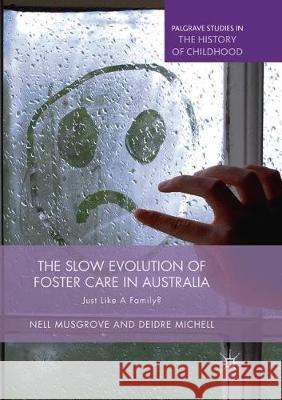The Slow Evolution of Foster Care in Australia: Just Like a Family? » książka
topmenu
The Slow Evolution of Foster Care in Australia: Just Like a Family?
ISBN-13: 9783030067403 / Angielski / Miękka / 2018 / 314 str.
Kategorie BISAC:
Wydawca:
Palgrave MacMillan
Seria wydawnicza:
Język:
Angielski
ISBN-13:
9783030067403
Rok wydania:
2018
Dostępne języki:
Numer serii:
000464303
Ilość stron:
314
Oprawa:
Miękka











